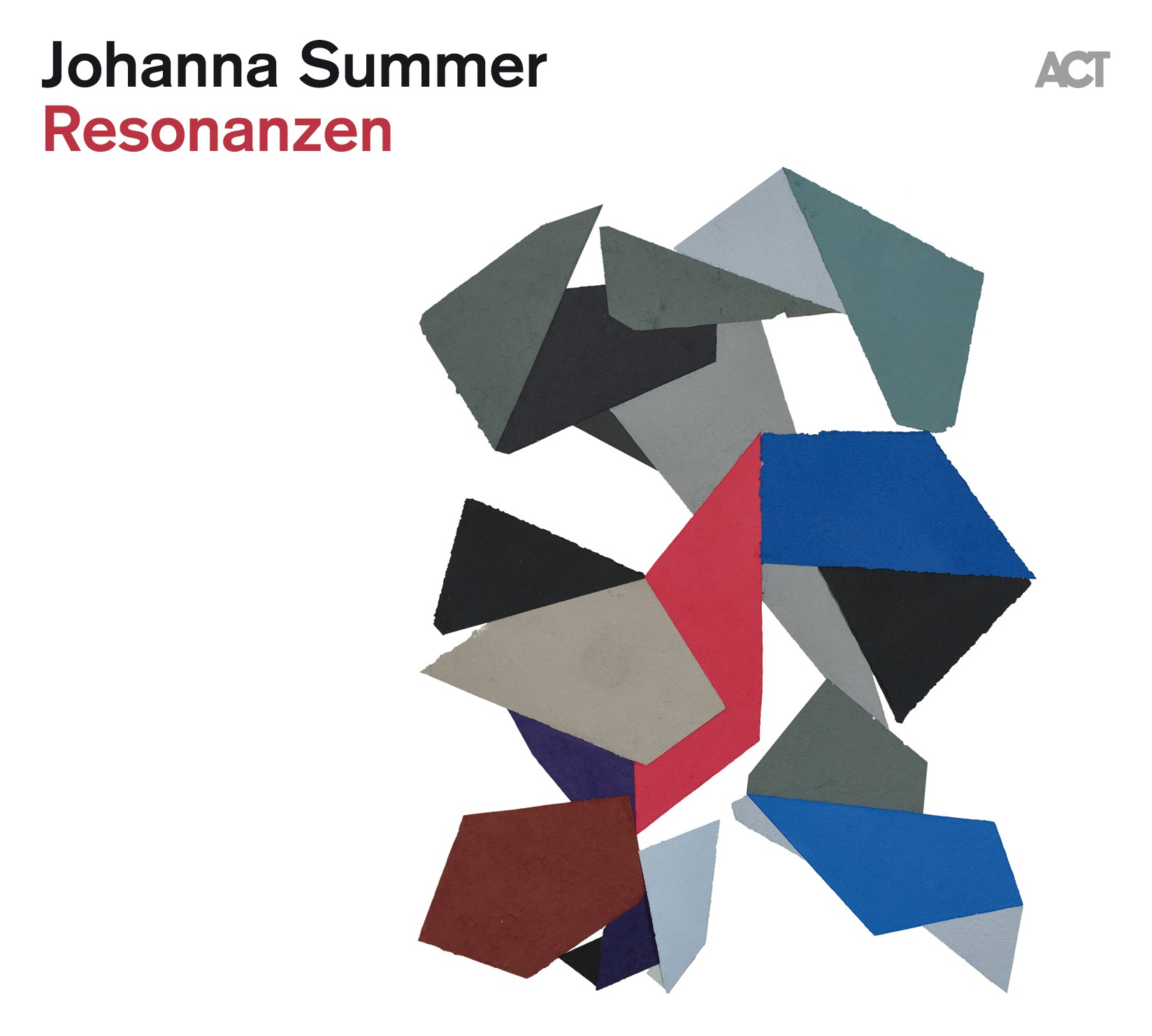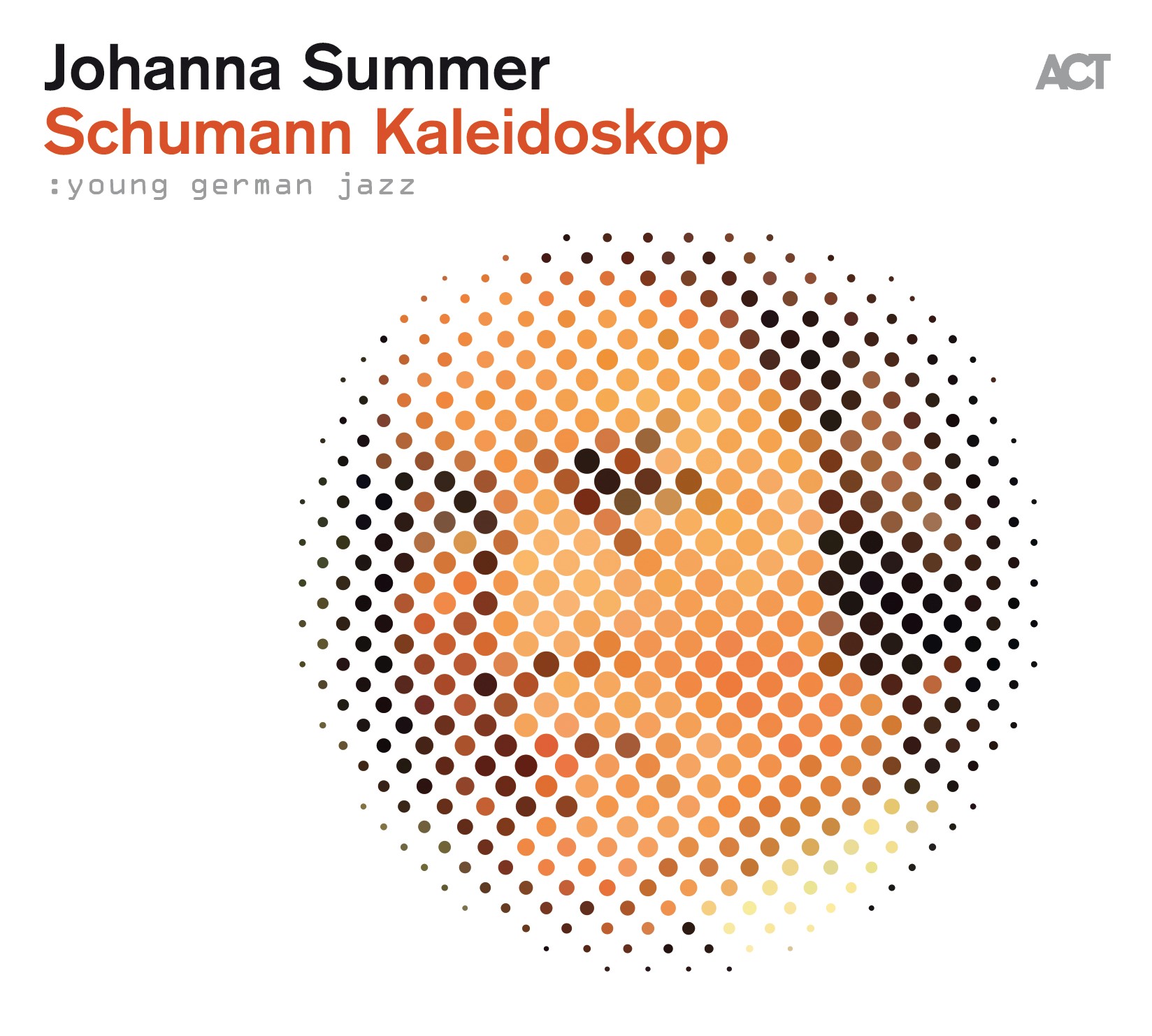Back
VÖ: 27.01.2023
Genre: Piano Jazz
Johanna Summer / piano
Recorded by Emanuel Uch at Ölberg-Kirche Berlin, December 2021 Mixed and mastered by Emanuel Uch
Produced by Andreas Brandis & Emanuel Uch
Johanna Summer plays a C. Bechstein D 282. Piano Technician: Hervé Catin
the art in music: Cover art "Creative Friction" by Katja Strunz, 2017
In early 2020, listeners and the media were delighted, amazed, and taken completely by surprise by pianist Johanna Summer’s debut album “Schumann Kaleidoskop” (Schumann Kaleidoscope). Her improvisational approach to Robert Schumann's “Kinderszenen” also caught the admiration of colleagues from a wide range of musical backgrounds. Star classical pianist Igor Levit’s comments on the album were clear yet heartfelt: “Johanna Summer is an outstanding jazz pianist. She is so centred and at ease with herself, she handles material so confidently and freely...and yet she finds her own right note every time.” Piano poet Malakoff Kowalski found the album simply “scandalously good” and was “enraptured and amazed by an artist who fearlessly follows the music”. And jazz icon Joachim Kühn stated: “Johanna Summer's music is full of fantasy and without category. Coming from European classical music, with a wonderful touch, she creates something perfect and complete. Something her own”.
With “Resonanzen” (Resonances) Johanna Summer has extended her extraordinary art and deepened the way she re-tells the music of classical composers through improvisation. The album spans a wide range, starting with Bach, Schubert, Beethoven, Tchaikovsky, Grieg and Ravel and ending with Mompou, Ligeti and Scriabin. Johanna Summer's deep insights into the two worlds of composition and improvisation are the result of the particular path along which she has developed as a musician. In her childhood and youth, she solely studied classical music. Jazz and improvisation came relatively late, but when they did, it was with a powerful focus. Her classical grounding remained in place, and yet there were many things that she needed to re-learn for “Schumann Kaleidoskop” and for “Resonanzen”. As she says: “It was very important that I should master the original pieces first. That was particularly demanding for “Resonanzen”, because each of these very contrasting compositions makes very different demands on me as a player. At the same time, improvisation is also an art which you have to keep practising and developing, so that the music can attain its own natural flow. To do justice to both of these sides, and to find a balance between them, these really are lifelong tasks for me.”
The challenge which Johanna Summer sets herself with her improvisational approach, using such diverse and demanding works as her sources, is also proven by the fact that “Resonanzen” was recorded twice, in very different settings, so that the music could flow as naturally and coherently as it does on the album. Johanna Summer remembers: “For the first session I had prepared everything meticulously and went into the studio with the attitude of a real perfectionist...and also with the objective that the new album absolutely had to be better than the previous one. I could hear this way of approaching the music very clearly in the results. In the process of playing, I had already pre-judged too much, thought too much and I ended up stopping again and again because I thought it had to be more perfect somehow. That made the spaces so tight for me that I had to constantly squeeze through them.” These first results didn't have the inspiration or the flow which they should have. So a second studio session took place in an atmosphere which was much more like a concert: the programme was played through twice without any interruptions, cuts or analysis, in front of a small audience. “That made all the difference,” she recalls. “The feeling of playing for an audience did something to me. I was finally able to play with freedom because I knew I couldn't stop or do any patching anyway. I could simply allow things to happen and take their course.”
Johanna Summer, it would seem, is never content to take the easy option, something demonstrated by the fact she chose the demanding form of a solo piano recital for her debut album, and has now gone on to develop it further in “Resonanzen”. For a young artist to set herself the objective of moving confidently within two musical disciplines, each of which is a challenge in itself – and to make such a success of it – is a remarkable achievement. And even more so because the listener doesn’t hear even the slightest hint of any of the struggle and effort involved in “Resonanzen”. Johanna Summer's playing is so serene, flowing and soulful. There is so much here which is going to amaze and delight. And every time the listeners might feel, that they know what’s next and where the music is headed, there’s another surprise coming up.
Recorded by Emanuel Uch at Ölberg-Kirche Berlin, December 2021 Mixed and mastered by Emanuel Uch
Produced by Andreas Brandis & Emanuel Uch
Johanna Summer plays a C. Bechstein D 282. Piano Technician: Hervé Catin
the art in music: Cover art "Creative Friction" by Katja Strunz, 2017
In early 2020, listeners and the media were delighted, amazed, and taken completely by surprise by pianist Johanna Summer’s debut album “Schumann Kaleidoskop” (Schumann Kaleidoscope). Her improvisational approach to Robert Schumann's “Kinderszenen” also caught the admiration of colleagues from a wide range of musical backgrounds. Star classical pianist Igor Levit’s comments on the album were clear yet heartfelt: “Johanna Summer is an outstanding jazz pianist. She is so centred and at ease with herself, she handles material so confidently and freely...and yet she finds her own right note every time.” Piano poet Malakoff Kowalski found the album simply “scandalously good” and was “enraptured and amazed by an artist who fearlessly follows the music”. And jazz icon Joachim Kühn stated: “Johanna Summer's music is full of fantasy and without category. Coming from European classical music, with a wonderful touch, she creates something perfect and complete. Something her own”.
With “Resonanzen” (Resonances) Johanna Summer has extended her extraordinary art and deepened the way she re-tells the music of classical composers through improvisation. The album spans a wide range, starting with Bach, Schubert, Beethoven, Tchaikovsky, Grieg and Ravel and ending with Mompou, Ligeti and Scriabin. Johanna Summer's deep insights into the two worlds of composition and improvisation are the result of the particular path along which she has developed as a musician. In her childhood and youth, she solely studied classical music. Jazz and improvisation came relatively late, but when they did, it was with a powerful focus. Her classical grounding remained in place, and yet there were many things that she needed to re-learn for “Schumann Kaleidoskop” and for “Resonanzen”. As she says: “It was very important that I should master the original pieces first. That was particularly demanding for “Resonanzen”, because each of these very contrasting compositions makes very different demands on me as a player. At the same time, improvisation is also an art which you have to keep practising and developing, so that the music can attain its own natural flow. To do justice to both of these sides, and to find a balance between them, these really are lifelong tasks for me.”
The challenge which Johanna Summer sets herself with her improvisational approach, using such diverse and demanding works as her sources, is also proven by the fact that “Resonanzen” was recorded twice, in very different settings, so that the music could flow as naturally and coherently as it does on the album. Johanna Summer remembers: “For the first session I had prepared everything meticulously and went into the studio with the attitude of a real perfectionist...and also with the objective that the new album absolutely had to be better than the previous one. I could hear this way of approaching the music very clearly in the results. In the process of playing, I had already pre-judged too much, thought too much and I ended up stopping again and again because I thought it had to be more perfect somehow. That made the spaces so tight for me that I had to constantly squeeze through them.” These first results didn't have the inspiration or the flow which they should have. So a second studio session took place in an atmosphere which was much more like a concert: the programme was played through twice without any interruptions, cuts or analysis, in front of a small audience. “That made all the difference,” she recalls. “The feeling of playing for an audience did something to me. I was finally able to play with freedom because I knew I couldn't stop or do any patching anyway. I could simply allow things to happen and take their course.”
Johanna Summer, it would seem, is never content to take the easy option, something demonstrated by the fact she chose the demanding form of a solo piano recital for her debut album, and has now gone on to develop it further in “Resonanzen”. For a young artist to set herself the objective of moving confidently within two musical disciplines, each of which is a challenge in itself – and to make such a success of it – is a remarkable achievement. And even more so because the listener doesn’t hear even the slightest hint of any of the struggle and effort involved in “Resonanzen”. Johanna Summer's playing is so serene, flowing and soulful. There is so much here which is going to amaze and delight. And every time the listeners might feel, that they know what’s next and where the music is headed, there’s another surprise coming up.
On "Resonanzen," Johanna Summer expands and deepens her unique approach to improvisational storytelling based on the music of classical composers. The album covers a wide range, starting from Bach and moving through Beethoven, Schubert, Tchaikovsky, Grieg, and Ravel, and then to Skryabin, Mompou, and Ligeti. Virtuously, she navigates between the worlds of composition and improvisation. It's astonishing how confidently she manages this balancing act. Summer's playing is so self-assured, vibrant, and soulful. At every turn, a new surprise awaits.


